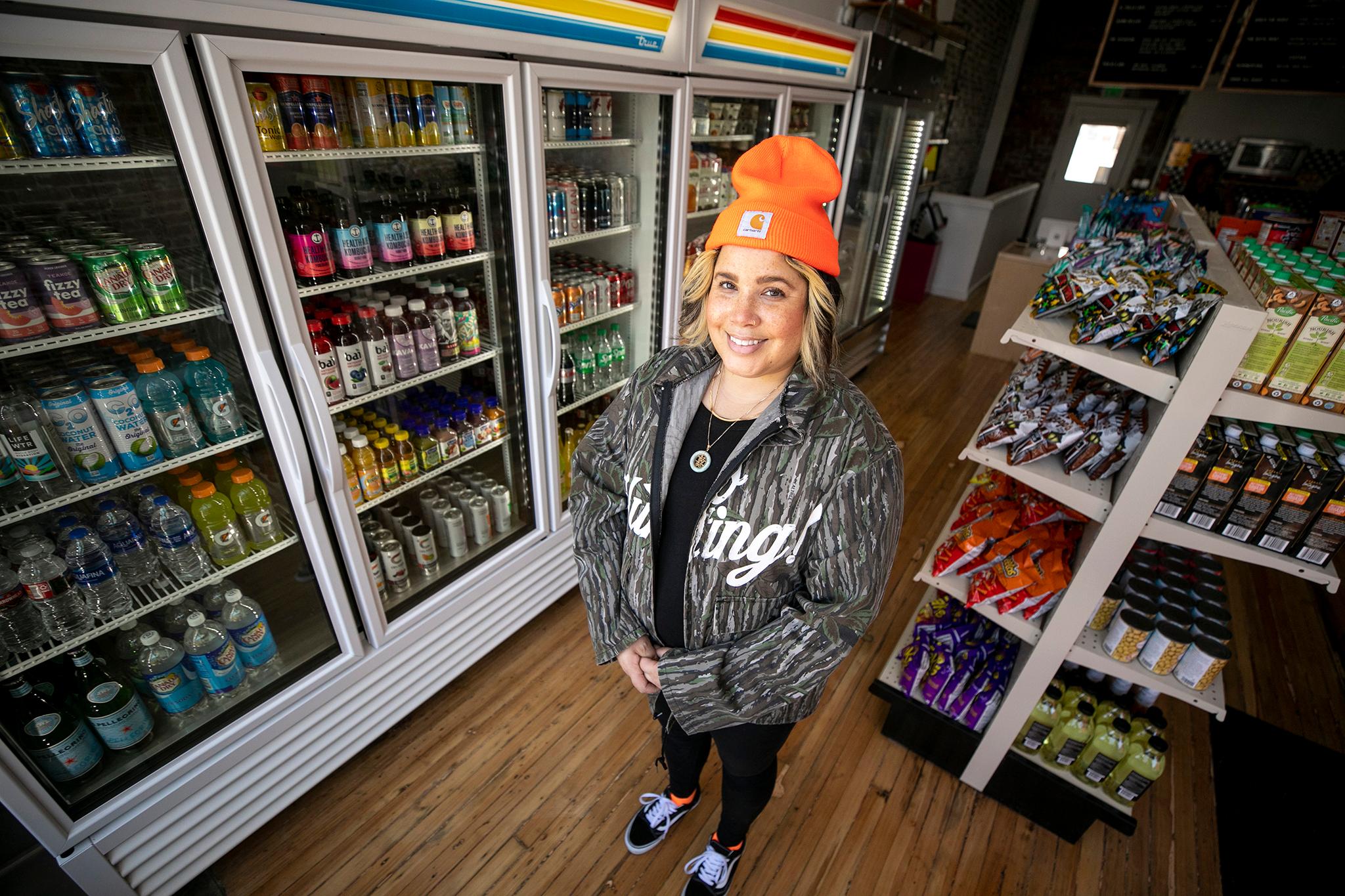Where can you get locally-made kombucha, a bag of chips, toilet paper, a prayer candle and a sub named after Jersey Shore hero, The Situation, made with genoa ham, hot capicola (gabagool for the real ones) and provolone?
The Little Bodega in Five Points.
The new small grocer/sandwich spot opened up at 613 22nd St. last month and has since been providing neighbors and workers with quick access to everyday needs and a hearty lunch.
Natasha Butler is the owner and her goal is to bring convenience and community feels to the block.
Butler is from Kansas City but, before moving to Denver about four years ago, she spent a few years in New York. The city is where Butler found her first bodega. When Butler moved to Cap Hill, she loved the walkability of the neighborhood, but the convenience of her local store was missing.
"Why do you have to go to a full grocery store for everything that you need," Butler said. "When you're living in the city, it's very feasible to walk down and grab whatever you need...And the one thing I miss the most about New York is my bodega...So the idea [for Little Bodega] started out as me missing the concept to then potentially filling a need to actually making the leap and doing it."
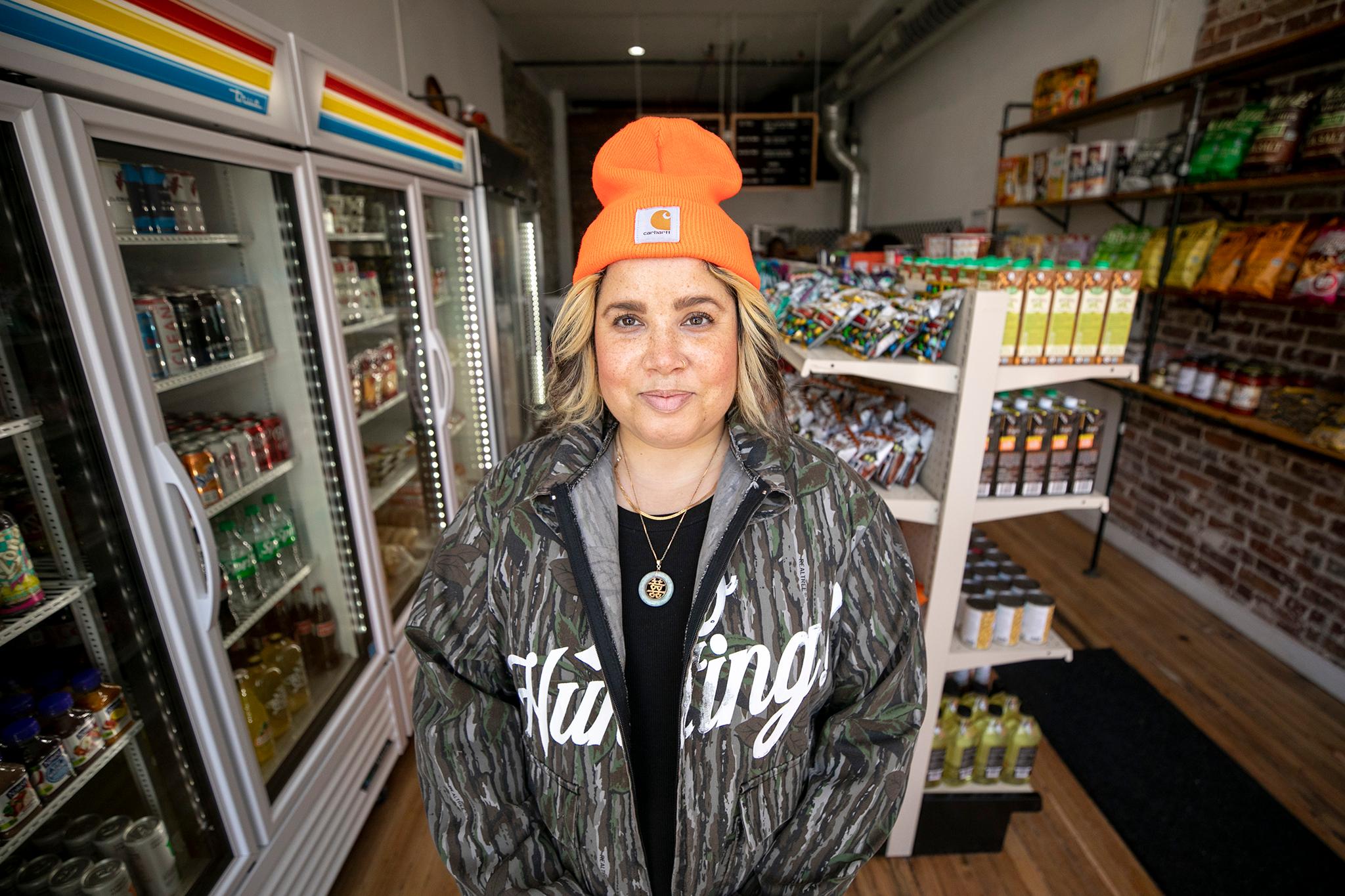
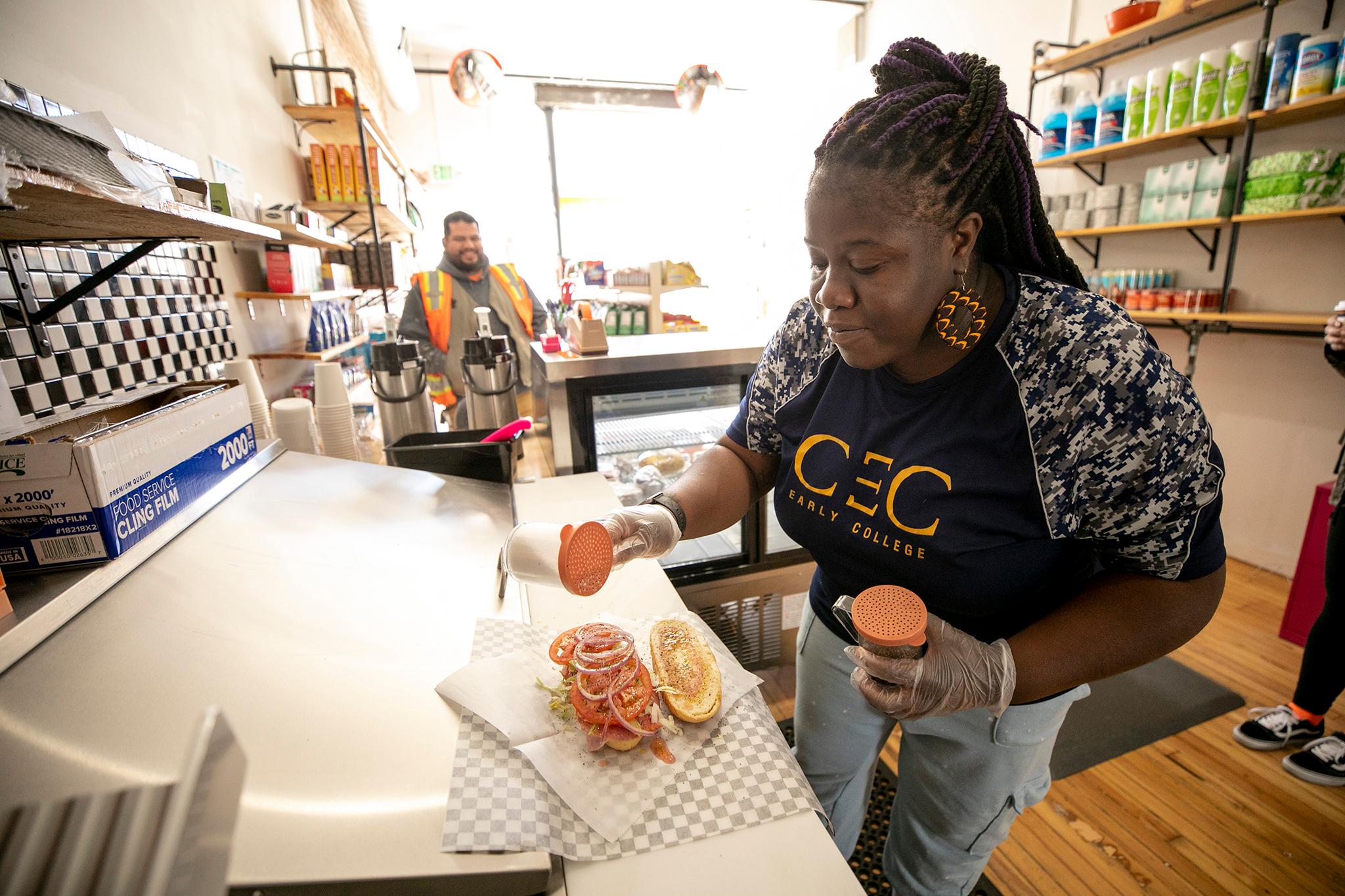
A brief etymology lesson: in Spanish, a "bodega" originally referred to a "storehouse for maturing wine."
The bodega culture took shape in the 1940s and 1950s with the rise in Puerto Rican-owned convenience stores in New York City and the meaning of the word shifted. Those stores were a necessity in that they provided culturally relevant goods to the growing Puerto Rican diaspora.
Now, bodega is a common term in New York synonymous with corner stores or delis and they cater to their respective neighborhoods and owners. A Dominican store may sell you tres golpes (Dominican breakfast) along with your baconeggandcheese, while a Yemeni store may have more halal options.
Beside the convenience of a bodega, there's also that community aspect. A neighborhood store caters to its community and often cashiers or the owners become secondary friends. Living in the fast-paced ever-changing city, Butler said her local bodega provided her with a familiar place where she could have a quick but meaningful social interaction.
"In a city like New York where it's huge and you feel like one of the crowd, one of the millions of people, my bodega was a place where I felt like home," Butler said. "I always felt welcomed when I walked in. My bodega guys knew me. They always took care of me. I just felt a welcoming presence there."
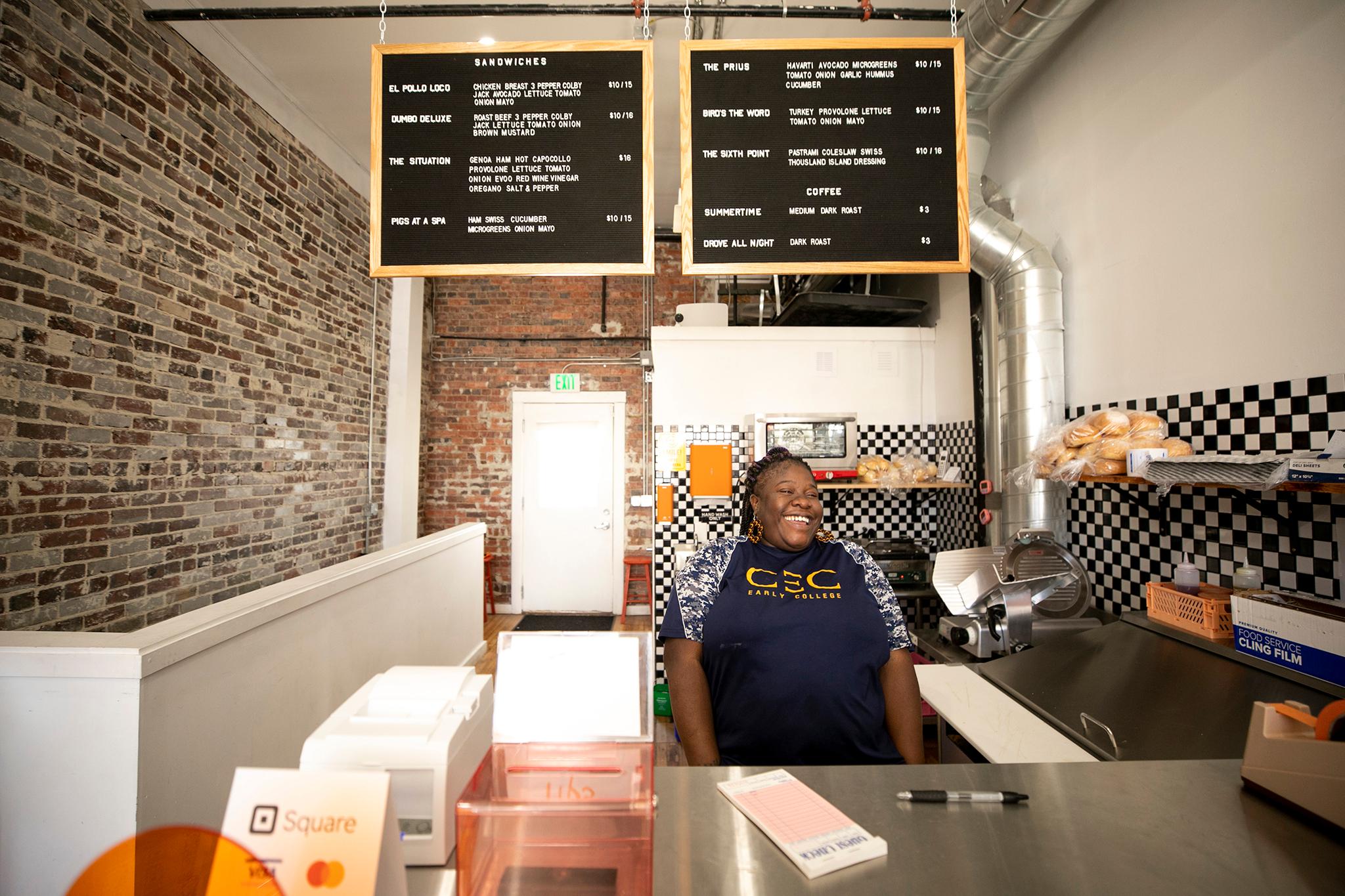
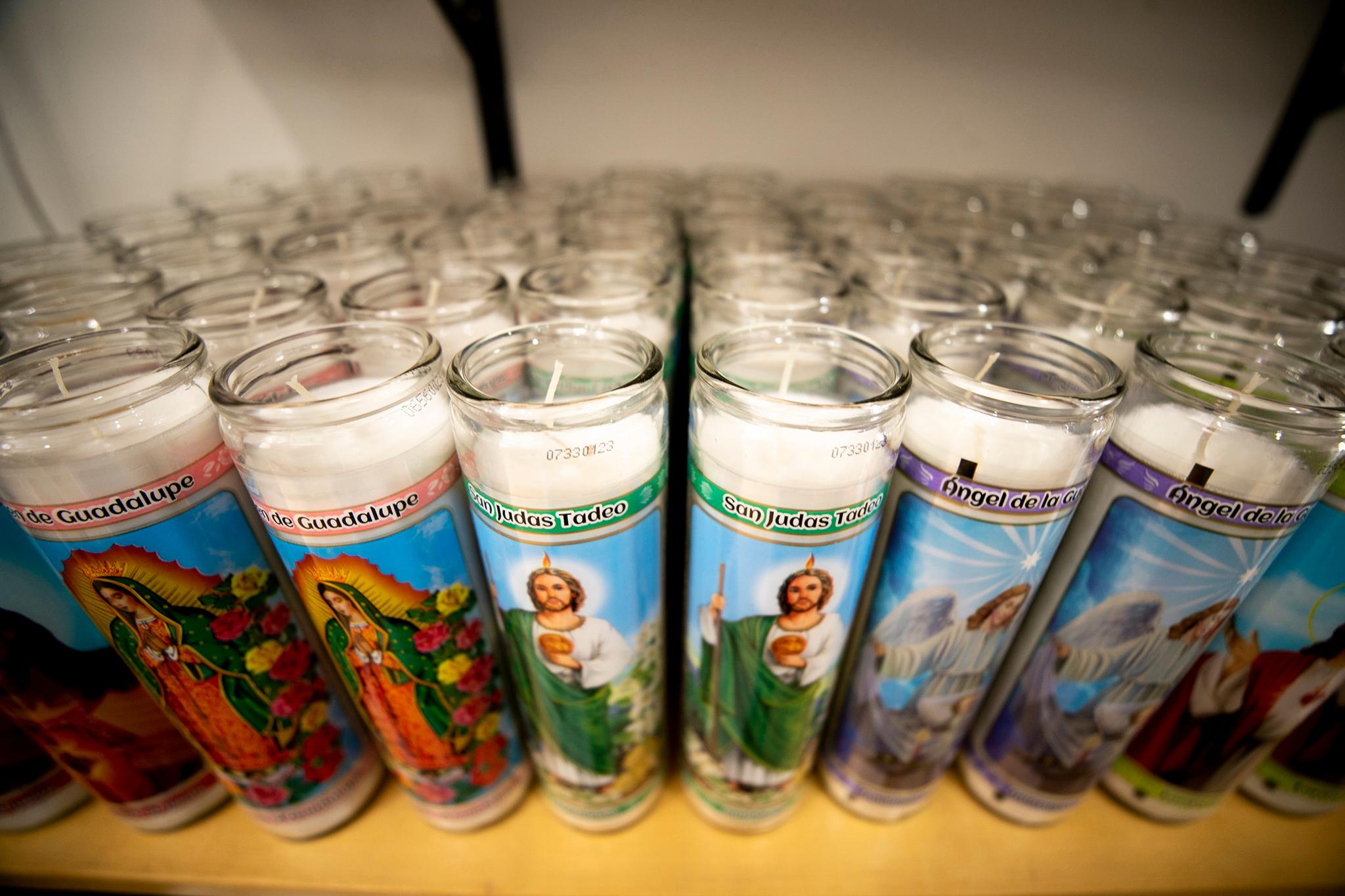
Missing that convenience and community feel, Butler decided to open her own bodega and Five Points was the perfect location.
It's where she currently lives and there are some "New York-inspired" places in the area such as Duke's Good Sandwiches, Rosenberg's Bagels & Delicatessen and Famous Original J's Pizza.
But there's also the history of Five Points.
Butler said she's half Black, so bringing a Black- and woman-owned business to a historically Black neighborhood that has faced extreme displacement of people and businesses was very important to her.
"There is diversity in Denver but I feel like people of color have been pushed out to the surrounding parts of Denver instead of centralized in the city, like Five Points," Butler said. "There are still some Black businesses in Five Points and I wanted to contribute to that portion."
The Welton corridor and Five Points have expanded with new posh apartments and more on the way, but the businesses, particularly the Black-owned businesses have struggled.
Coffee at the Point officially closed in January after living at the Five Points intersection since 2010. Melody Market, a convenience store similar to Butler's Little Bodega, closed a few weeks after the coffee shop, citing high rents and high maintenance costs. Flyfisher Group's Moods Beats Potions bar also closed last year.
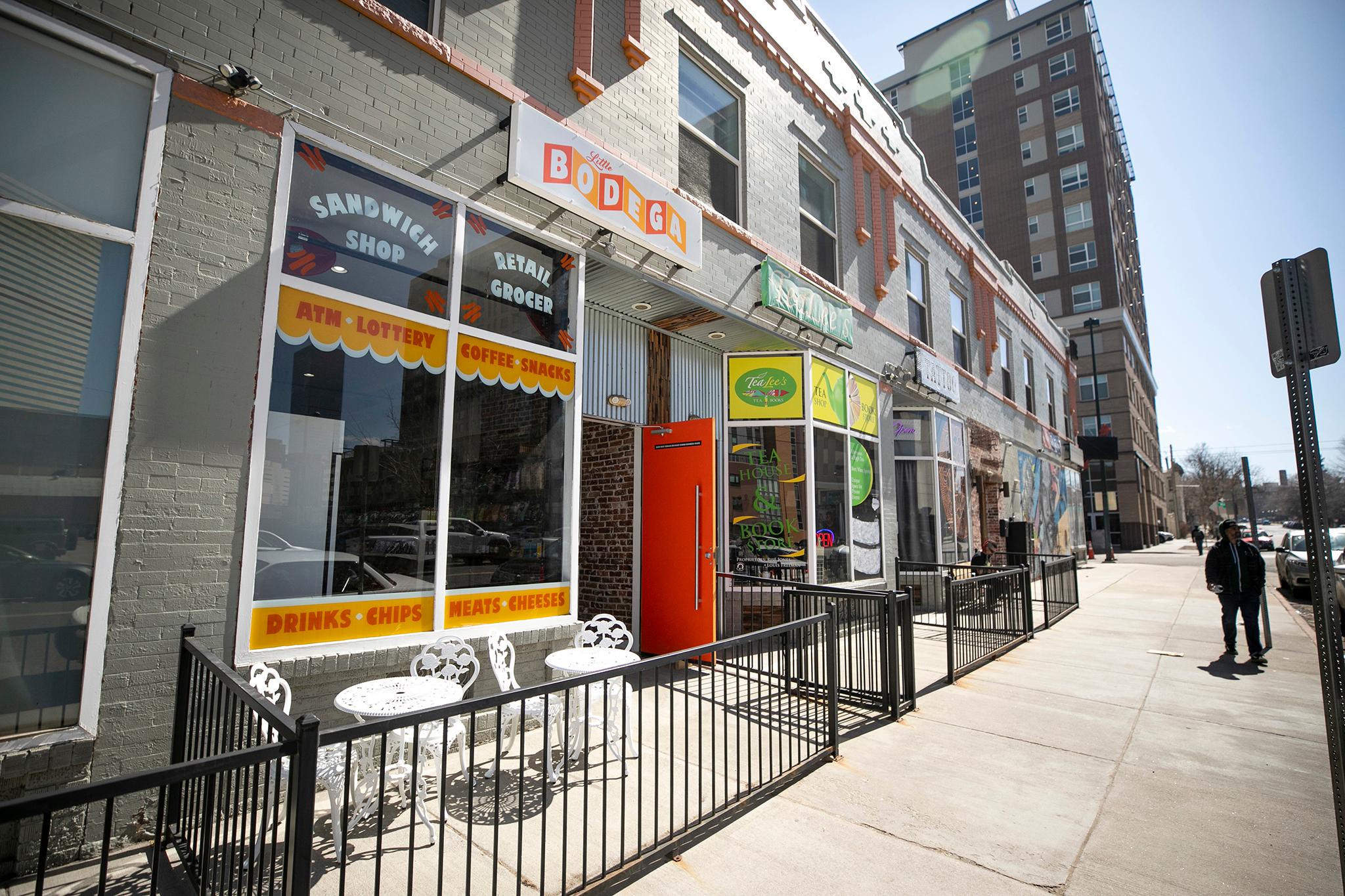
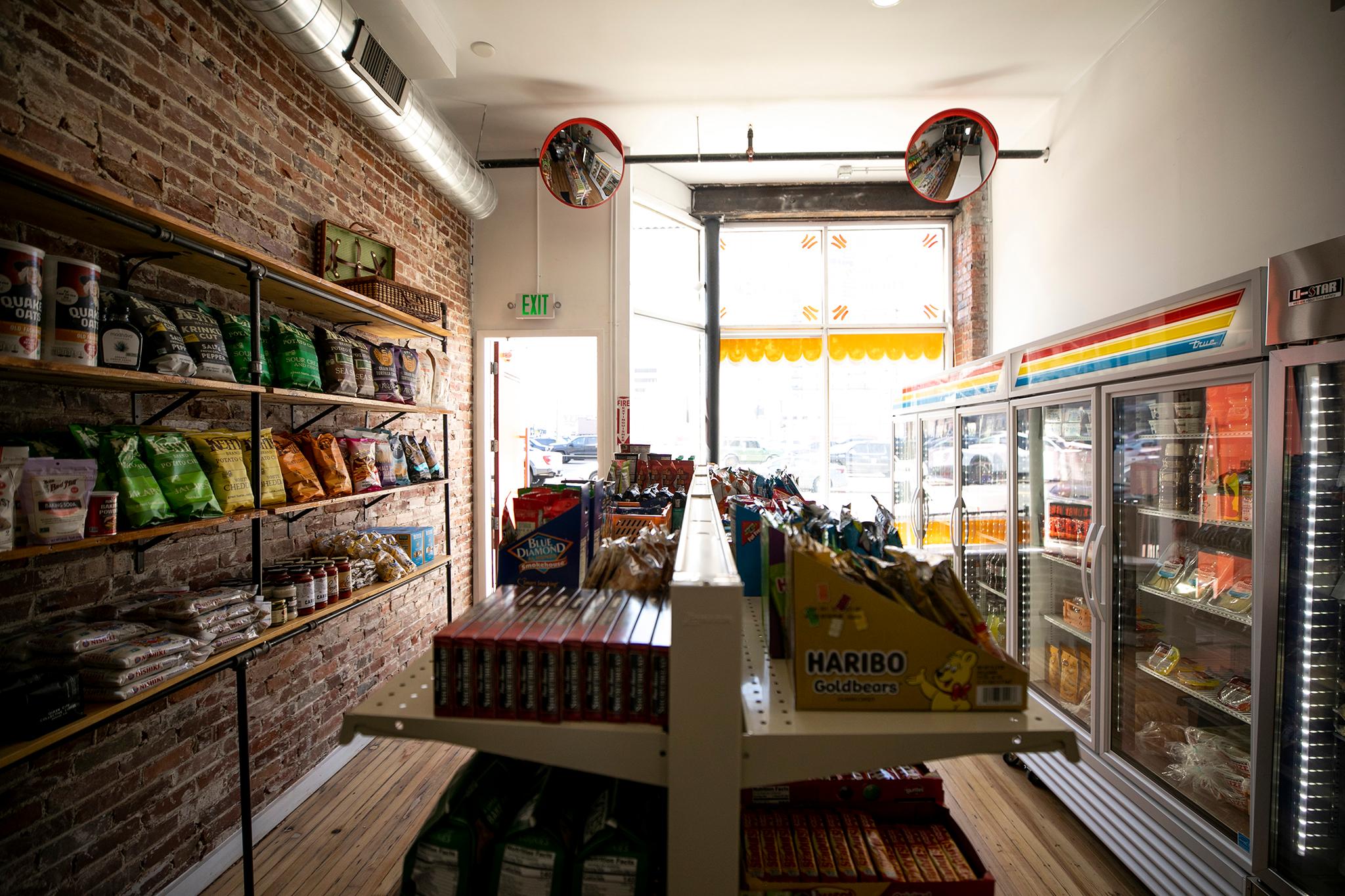
Flyfisher has also been at the center of the storefront changes in the neighborhood. Welton Street Cafe, the long-running and beloved soul food joint, closed last year after its own issues with landlord Flyfisher.
The Cafe is set to reopen along the Welton corridor, though an opening date is unknown and new businesses such as the Little Bodega and Marigold, a plant shop by day and cocktail bar by night, are filling the void of Black-owned businesses in the area.
It wasn't the easiest thing to get the bodega open, Butler said. It took about 13 months to open due to the back-and-forth permitting process. Butler said it took her about eight months just to get a construction permit.
"The city is the biggest obstacle in opening a business," Butler said. "The permitting process is just like banging your head against a brick wall. It shouldn't be this hard. It's already hard to start a business and the least the city can do is make it a little bit easier."
The permitting process across the spectrum, whether it be for restaurants or apartments, has been criticized by Denverites in recent months due to long wait periods and lack of communication. Melody Market and Duke's experienced their own long wait times for permits.
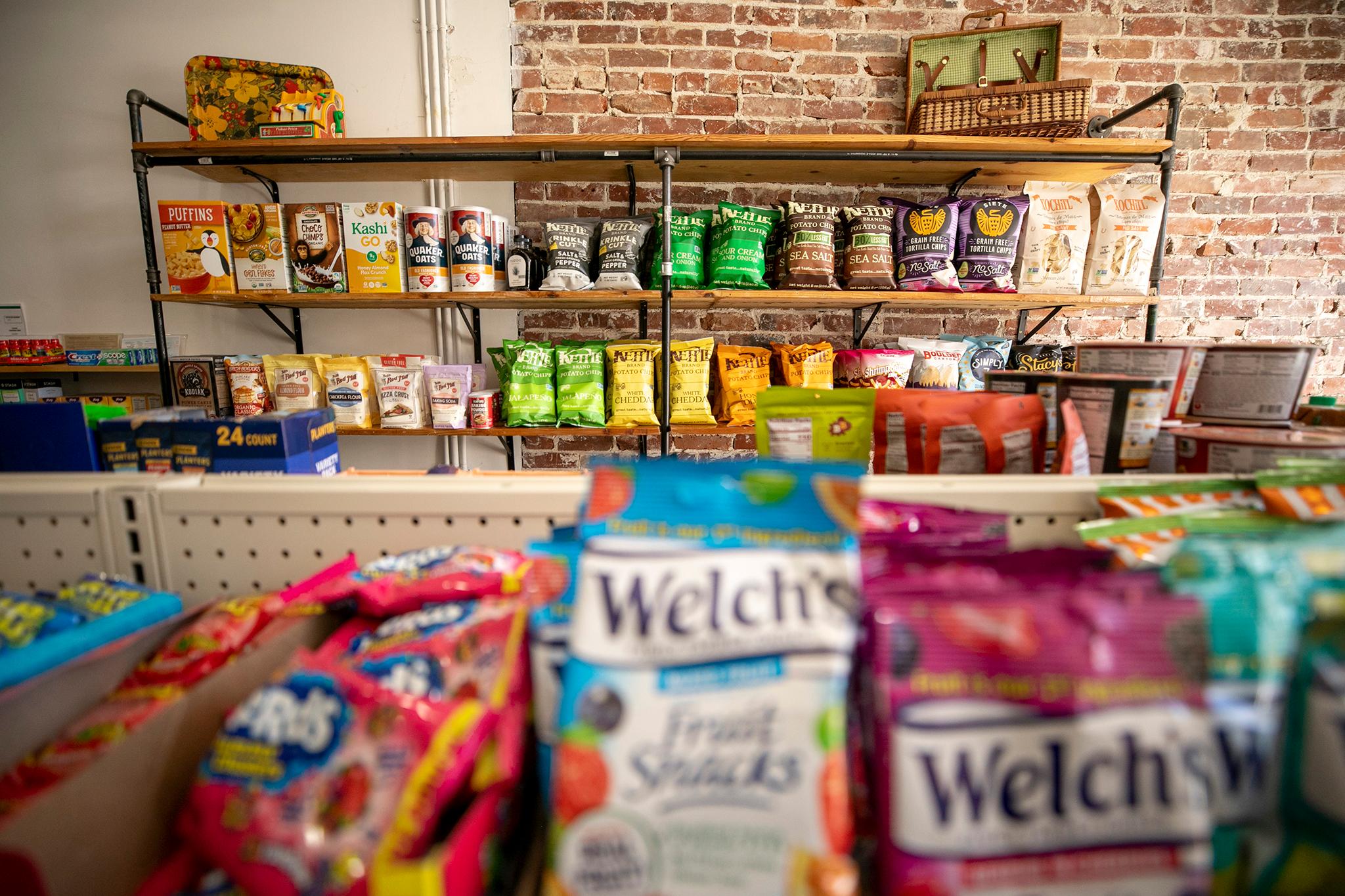
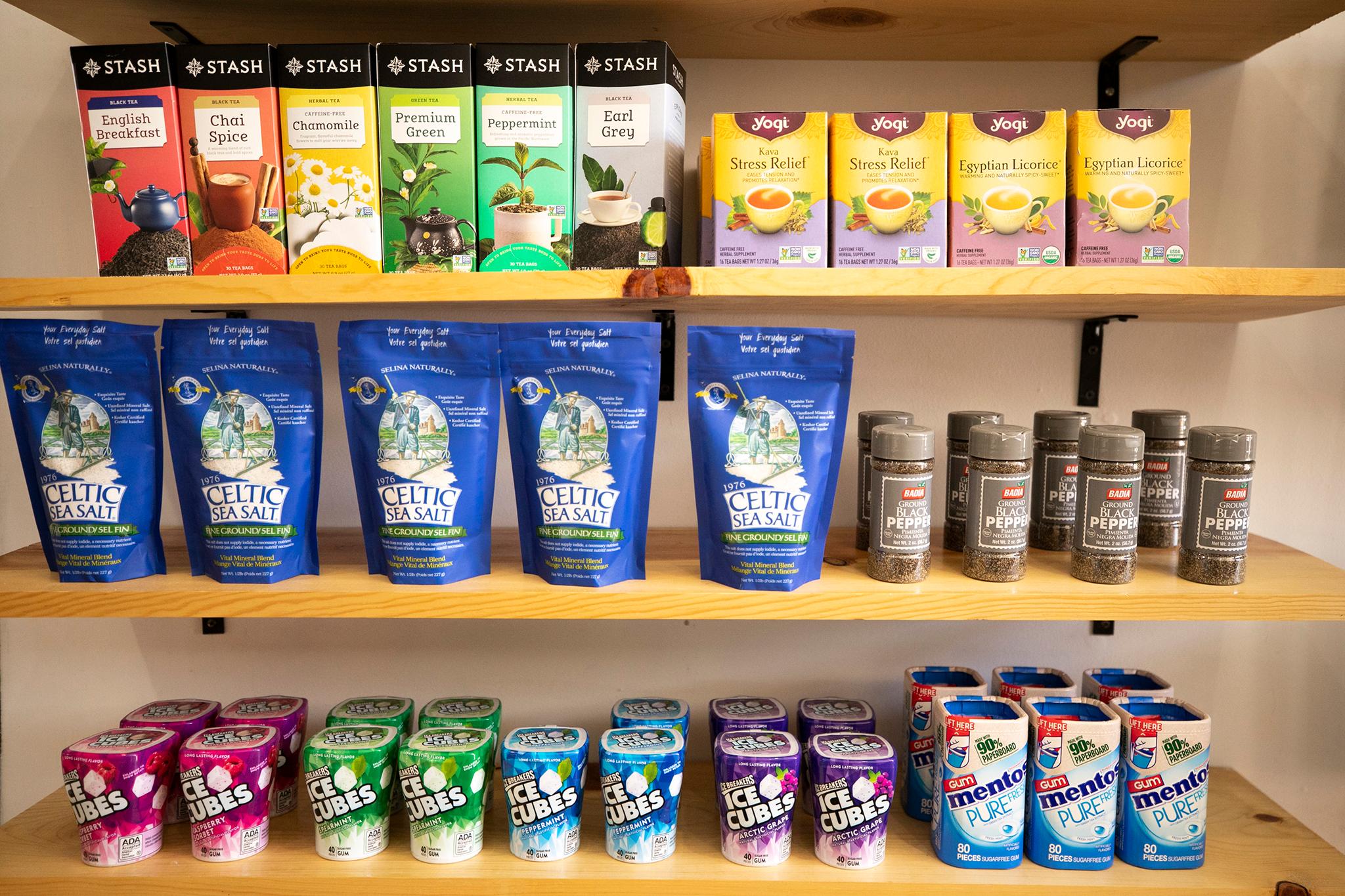
Denver Community Planning and Development officials previously said the department doesn't specifically keep track of small business permits, but in general, there is a backlog of applications for permits.
The department also said it has seen an influx in permit requests and is in the process of hiring more planners, implementing new ways to retain employees and changing how projects are assigned to speed up review times.
Despite bureaucratic slow downs, the Little Bodega is now open. It has a home goods section with paper towels and laundry detergent. There are basic food items such as tea, cereal, bread and snacks. There's an ATM, lotto and a newspaper stand for Westword and The Five Points Atlas.
There's also the sandwich counter. Besides the Italian Situation, there's the Prius which is a veggie sandwich and the Dumbo, a roast beef sandwich and an ode to the Brooklyn neighborhood where Butler lived.
The store also carries a ton of locally made items. There's Little Man Ice Cream pints, 3rd Bird Kombucha made by a woman who lives in Park Hill. Mile High Pie Company is providing sweet and savory pies, while Queen City Collective provides the drip coffee.
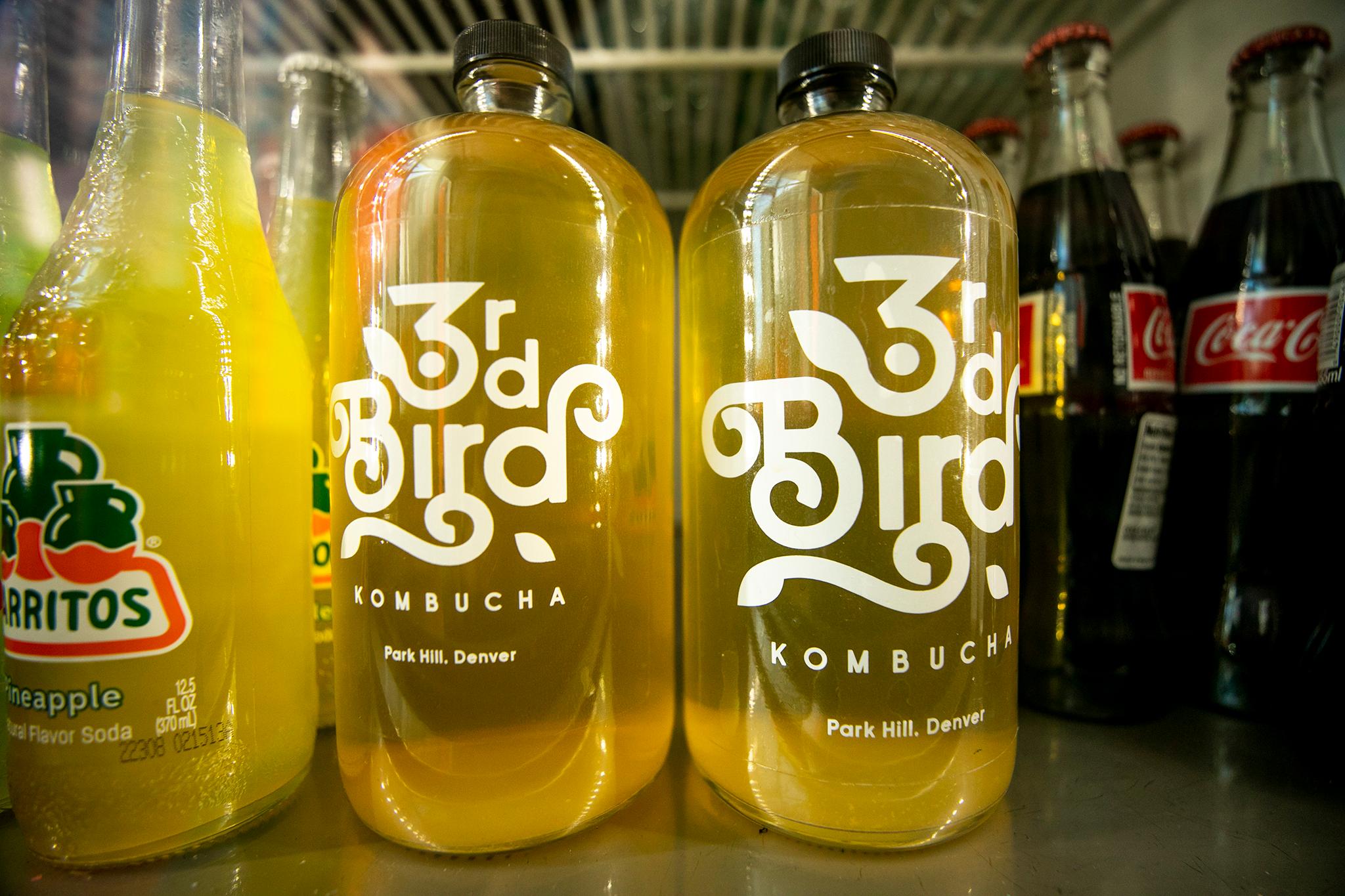
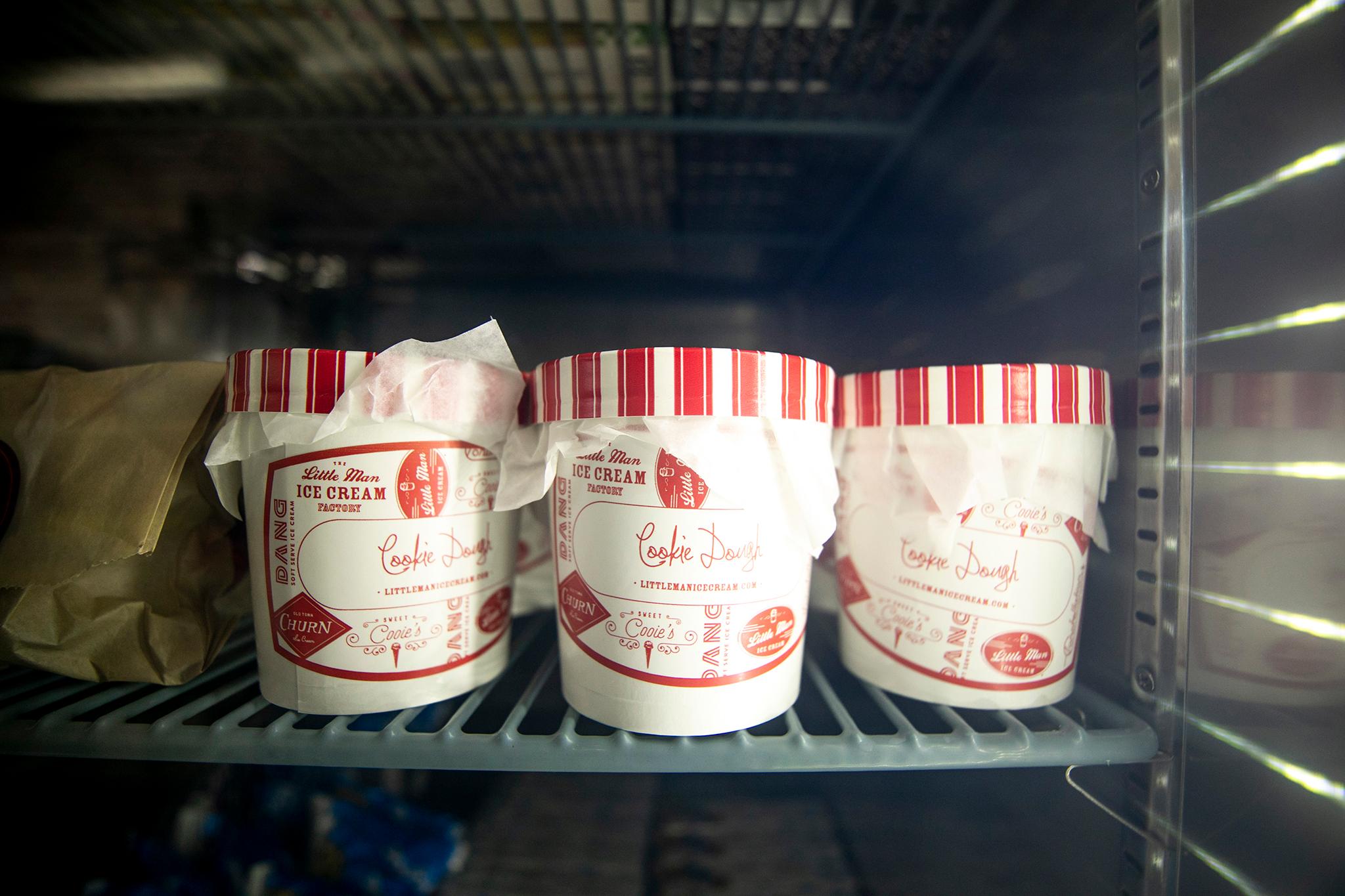
Butler also partnered with Full Stop Bakery for crackers, Susan's Samosas for frozen handmade South Sudanese samosas and Hazlo, a local company making elixirs for mocktails and cocktails.
Building those connections with other local businesses, Butler said, are vital to her brand.
"A bodega is the perfect spot to promote these businesses," Butler said. "Supporting other businesses and entrepreneurs is something that I definitely want to make a huge part of my business. That's part of the community aspect, is just supporting each other...The neighborhood is also drawn to these local products. They're not saying oh I can't wait to get my Red Bull from this place. They're saying oh you have Little Man Ice Cream? I can only get that in a few places."
The same support Butler is showing to local businesses is the same support she's looking to see from the area. Again, the ultimate goal is convenience and community. So far, Butler said the reception has been great.
Construction workers stop by for a quick lunch and small talk. Butler said the tattoo shop nearby has been her biggest supporter, using the ATM and grabbing snacks for long sessions. Surrounding residents are stopping by to check out the new spot for longer conversations.
It's what Butler was looking for in bringing a bodega to Denver.
"I want to be a neighborhood staple," Butler said. "I want to make conversations with people. I don't want our interactions to be purely transactional. There's so much about our society that's so quick and transactional. People don't take the time to make that kind of small talk with their cashiers or the people who work in their neighborhood. Those kinds of interactions can go a long way and it can make a difference in people's day to day life."

